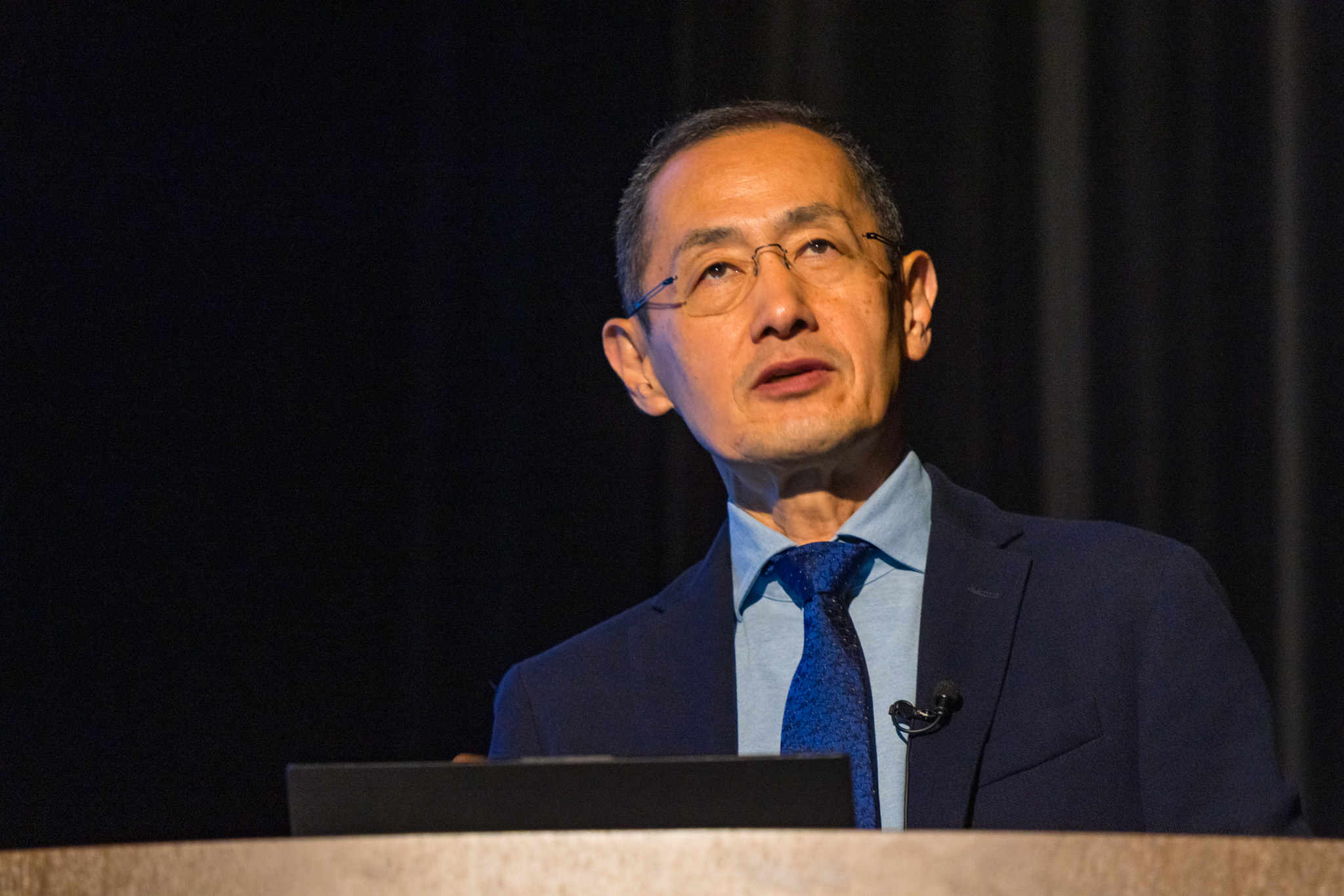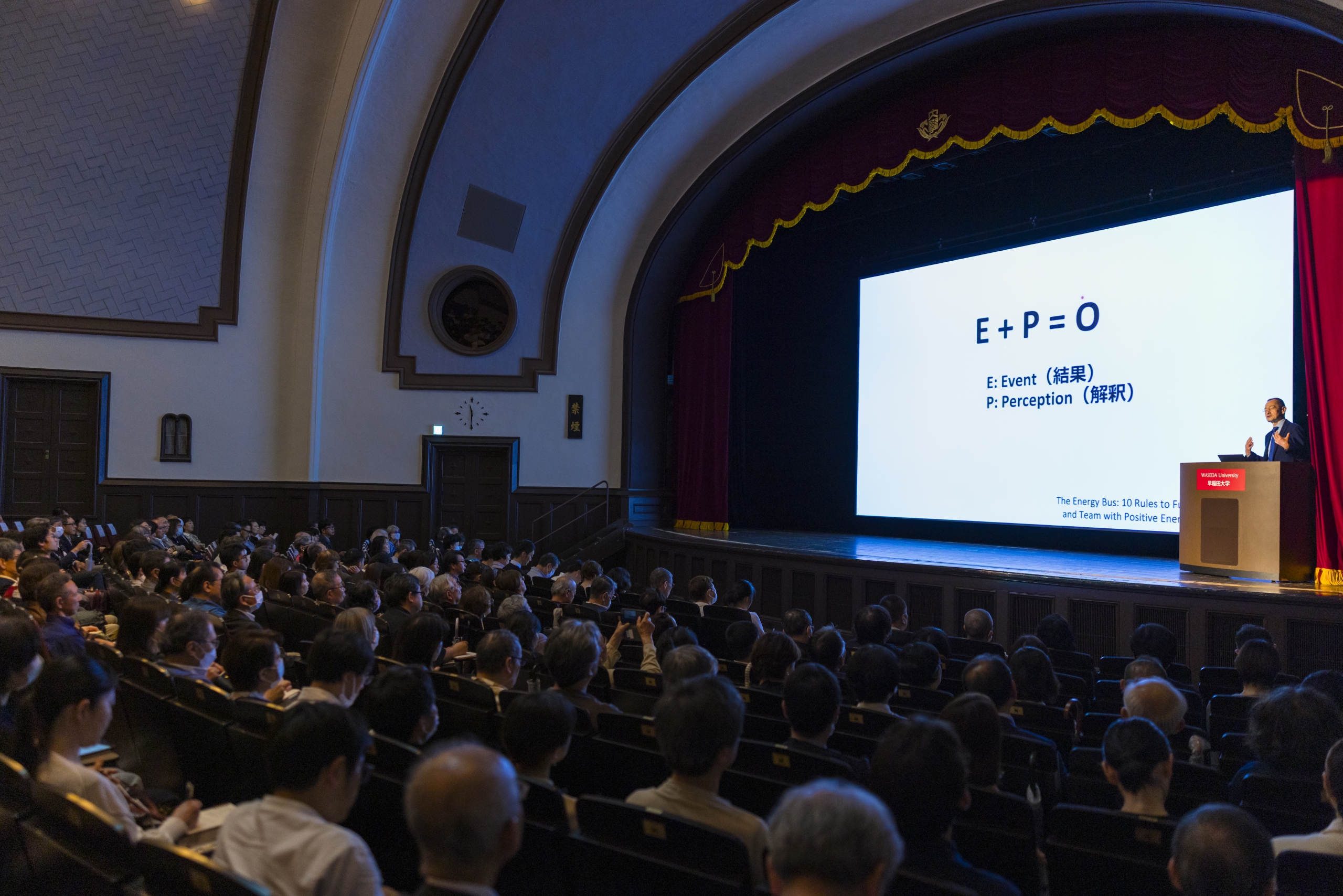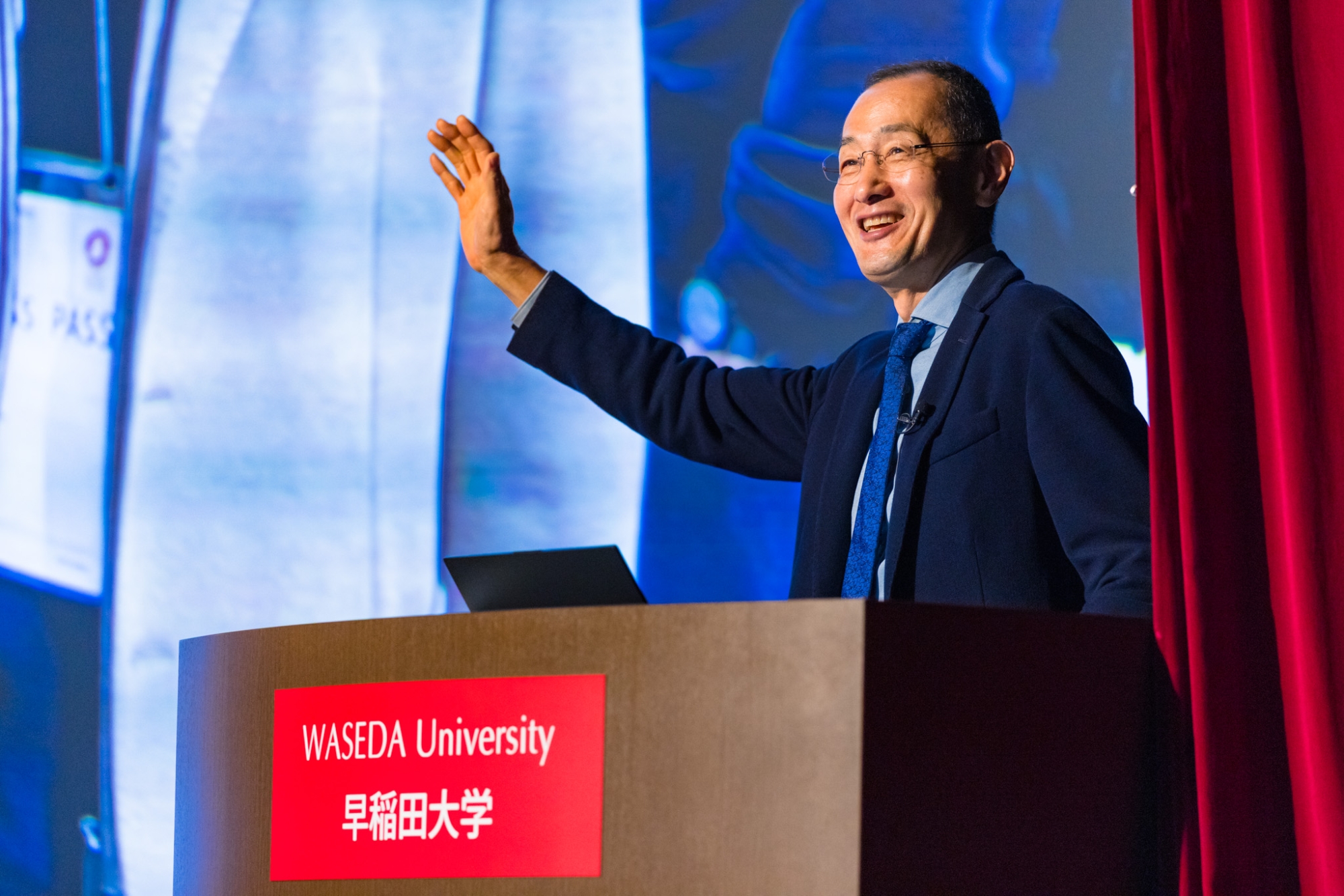The Bookmarks of a Scientist’s Path: Nobel Prize Laureate Shinya Yamanaka’s Literary Foundations
Fri, Jul 18, 2025-
Tags
On 10 June, Dr. Shinya Yamanaka, recipient of the Nobel Prize in Physiology or Medicine in 2012, came to Okuma Auditorium and gave a public lecture titled ‘Science and Literature — Thinking from the Frontier of Life Science.’ At this event, he gave a chronological outline of his experiences dating from childhood up until where he stands now. He is both a distinguished scientist and a devoted lover of literature. The Waseda International House of Literature, also known as the Haruki Murakami Library, organized this event, with the hope of encouraging more interaction between science and humanities.

Dr. Yamanaka won the Nobel Prize together with Sir John B. Gurdon for their work on cellular reprogramming. Their findings marked a big step in the medical field since the possibilities for researching diseases and finding cures increased.
From the outset, he shared with the audience how he was an avid reader growing up and his favorite genre was science fiction. In primary school, he was into fiction such as the Perry Rhodan Series. In middle school, he branched out into non-fiction on Earth’s deep history, the architecture of galaxies, and the burning arcs of stellar lives. He developed a passion for space exploration and aspired to study the universe.
When Dr. Yamanaka was in his 3rd year in middle school, his father, who was an engineer, got injured at work. A piece of metal was lodged into his leg, and due to a blood transfusion during surgery, he developed hepatitis of unknown cause. He began to think deeply about medicine. In high school, he came across a book titled Seimei dake wa byōdō da which roughly translates to “only life is equal” by Torao Tokuda. He credited this book with opening the door to medical science for him.
His father passed away when he was in his second year as a doctor. The cause of his disease remained unknown at that time, but it turned out to be Hepatitis C. Dr. Yamanaka mentioned that despite becoming a doctor, he felt a great sense of helplessness from being unable to save his life.
When he was 31 years old, he joined a research institution in the United States where he conducted an experiment to generate mice resistant to arteriosclerosis by overexpressing a certain gene in the liver. One day, to their surprise, the technician who worked with him discovered some mice looked obese. The first thing that came to her mind was pregnancy. However, the male mice experienced similar physical development. Cancer was the reason. He found that a gene was the cause. He was surprised but also happy to discover this unexpected result.
Referencing this story, Dr. Yamanaka explained what makes one suitable for being a researcher is one’s reaction to the results. The thrill and excitement he experienced was a key element in his research. He added if you are excited when you get results you do not expect, you might have a good chance to succeed as a researcher.

On another note, Dr. Yamanaka expressed an optimistic view of incorporating AI into his work. A useful and fast-developing tool, AI has helped him to detect grammar mistakes, create images from a few keywords, manage his research plans, and analyze data at a quick speed. However, he stated that even if AI becomes capable of interpreting, the importance of learning English will not change. Considering that there are many major research institutions located in the US, he reminded the students that English capability remains relevant for researchers.
Dr. Yamanaka mentioned that, due to differences in research environments between Japan and the United States, he developed PAD (Post America Depression) after returning from his studies abroad. He gave a humorous example of how when he was in the United States, there were staff members looking after his mice, but in Japan, he had to take care of more than 100 mice by himself. He made a quibble that he thought he was more of a caretaker of mice than a researcher.
To help raise awareness for iPS cell research and secure donations, Dr. Yamanaka participates in marathons. Another famous marathon runner who shares deep connections with Waseda, the world-renowned author Haruki Murakami, is his running buddy. Dr. Yamanaka listens to Murakami’s books. In Japan, we often think of science and humanities as two distinct academic categories. However, Dr. Yamanaka’s overarching message is that the two are closely connected, and we cannot ignore one or the other.
Dr. Yamanaka held a Q&A session, providing a valuable opportunity for students to interact with him. Some of the questions included asking for advice for high school students, his opinion on the integration of science and humanities, and his private refresh routine. He suggested that students should learn English, putting an emphasis on direct communication. When asked about the integration of science and humanities, he mentioned that there are often questions that one cannot answer from the perspective of a single field of study. As for his refreshing routine, he said running helps him to clear his mind. Currently, he is able to do a full marathon within three and a half hours, but he still wishes to improve his performance.
As a Waseda student, being able to attend this event was a memorable experience. It allowed me to expand my way of thinking and to gain a deeper understanding of the ongoing efforts it takes to continuously grow and challenge oneself.
This article was written by the following Student Contributor:
Chitose Shindoh
School of Culture, Media and Society; Global Studies in Japanese Cultures Program














